
OR
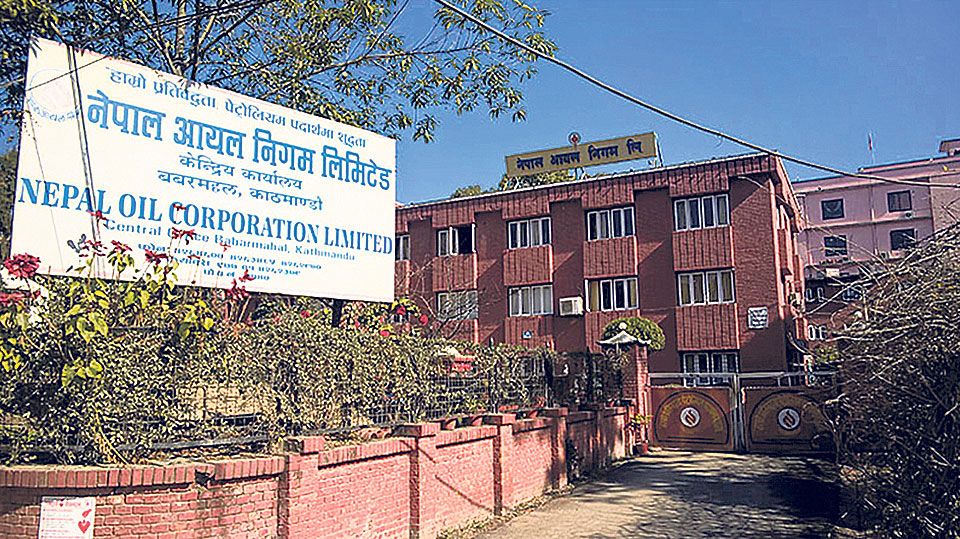
Consumers feel cheated as NOC flouts its own promise to enforce auto-pricing system
NOC reduced petrol price by Rs 3 per liter in the past five months even as its price in int’l market declined by 28 percent
KATHMANDU, Dec 18: Despite its promise to enforce an auto-pricing mechanism, Nepal Oil Corporation (NOC) reduced the prices of petroleum products on Friday after a gap of five months even as the fuel prices in the international market declined by more than 28 percent in the same period.
Amid mounting pressure from the ordinary public, the state-owned oil monopoly reduced the prices of petrol and diesel by Rs 3 per litre. Currently, petrol is being sold at Rs 178 per litre and diesel at Rs 175 per liter. The last time the NOC revised the fuel prices was on July 4 when the price of petrol was determined at Rs 181 per liter and diesel at Rs 172 per liter, citing soaring prices of petroleum products in the international market.
Over the period, the price of crude oil dropped to US $ 80.86 per barrel from around $112 per barrel in the international market. This shows that the price of fossil fuels lost 27.8 percent in its market price in the past five months.
Ironically, the state-owned oil monopoly that promised to enforce the auto-pricing system not only stood reluctant to reduce the prices as per the changes seen in the international market but took a decision to raise the price of diesel and kerosene from Rs 172 per liter to Rs 178 per liter.
Whenever there is protest against the sharp hike in the prices of petroleum products, the NOC management claims that it has been adopting the auto-pricing policy since September, 2014. The policy enables the NOC to revise the domestic fuel prices in line with the fluctuation of oil prices in the international market.
However, the NOC has been breaching its own promise despite a sharp decline in the prices of petroleum products in the global market.
NOC still at loss !
Although the NOC has been charging exorbitant prices to the general public, the state-owned public utility has said that it still owes Rs 19 billion to the Indian Oil Corporation (IOC), the sole supplier of the petroleum products to NOC.
Experts argue that consumers are forced to bear the cost of NOC’s managerial inefficiency to reduce pilferage, among others. The failure on the part of NOC to address its internal problems is passing the burden of heavy cost to the consumers.
Jyoti Baniya, chairperson of Nepal Consumers’ Forum, termed NOC’s reluctance in revising the price as the dishonesty of the corporation. “The corporation instead of following its own rule of auto pricing, is keeping away from it just to secure hefty profit,” he said.
Baniya also accused the NOC of misusing the money from the price stabilization fund in other areas. “Had the price stabilization fund been properly utilized, the price burden for the consumers would not have been so severe,” he said.
In its revised price list sent on Thursday, the Indian supplier has reduced the prices of petrol by Rs 6.90 per liter, diesel by Rs 12.31 per liter and aviation fuel by Rs 10.61 per liter. At the revised price now, the NOC earns profits of Rs 17 per liter and Rs 10 per liter, in petrol and diesel, respectively. The NOC has projected that it will earn a profit of Rs 2 billion in the next one month.
Baniya also blamed the government for being apathetic on removing heavy taxes being imposed on petroleum products. “If the government relieves the petroleum from taxes, the NOC does not have to face extra burden of interest rates on loans, which ultimately has been passed on to the consumers.
A high ranking official of the NOC dismissed the accusation of corporation. “In the past too, the NOC did not raise prices on par with the increased price in the international market. At present, the NOC is suffering a heavy financial burden, which limits the NOC to heavily reduce the prices of petroleum prices in the domestic market,” the official said.
You May Like This
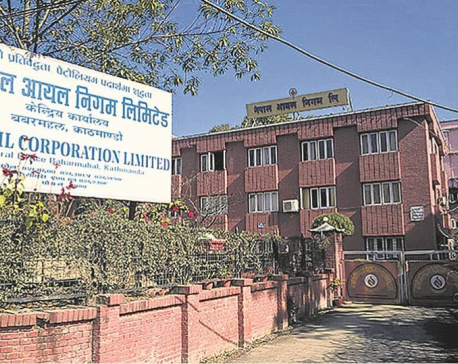
NOC reduces price of diesel by Rs 10 per liter and petrol by Rs 3 per liter
KATHMANDU, April 4: Nepal Oil Corporation (NOC) has reduced the price of diesel by Rs 10 per liter and that... Read More...
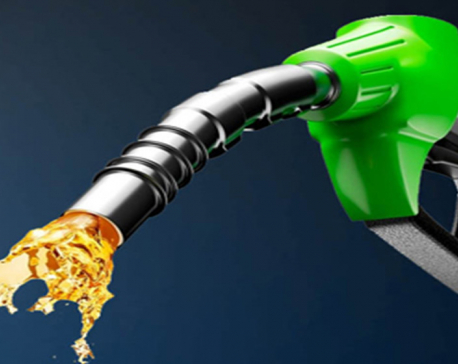
NOC decreases price of petrol and diesel by Rs 3
KATHMANDU, Dec 17: Nepal Oil Corporation (NOC) has reduced the prices of petroleum products. ... Read More...

NOC’s accumulated loss reaches Rs 31 billion
KATHMANDU, August 9: According to the latest price list of fuels sent by the Indian Oil Corporation (IOC), the Nepal... Read More...
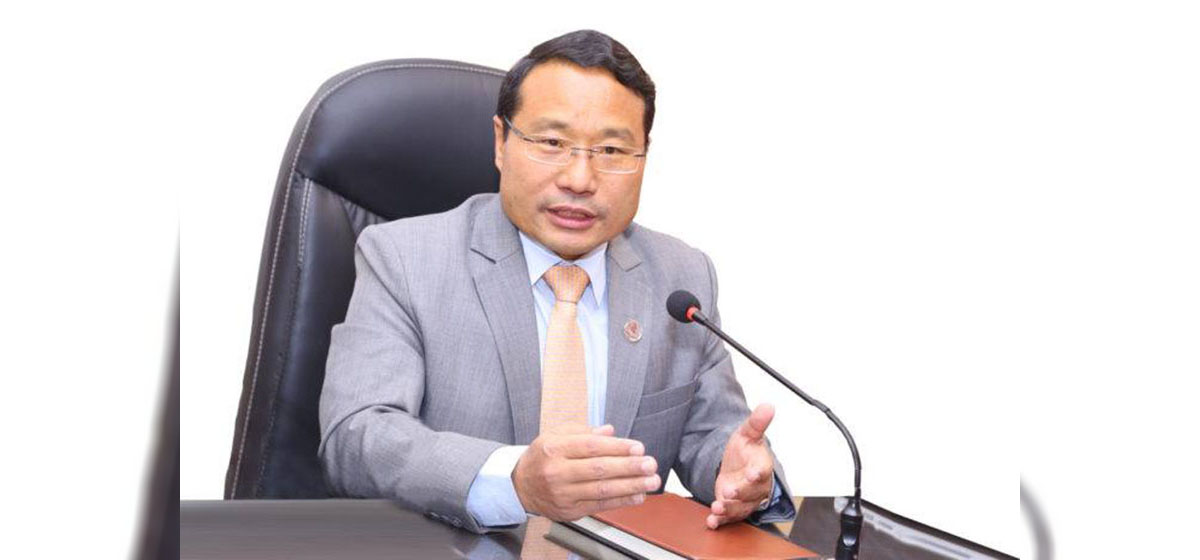

Just In
- FinMin Pun addresses V-20 meeting: ‘Nepal plays a minimal role in climate change, so it should get compensation’
- Nepalis living illegally in Kuwait can return home by June 17 without facing penalties
- 'Trishuli Villa' operationalized with Rs 100 million investment
- Unified Socialist rejoins Lumbini Province govt following ministry allocation
- Police release ANFA Vice President Lama after SC order
- 16 hydroelectric projects being developed in Tamor River
- Cosmic Electrical completes 220 kV transmission line project
- Morang DAO imposes ban on rallies, gatherings and demonstrations












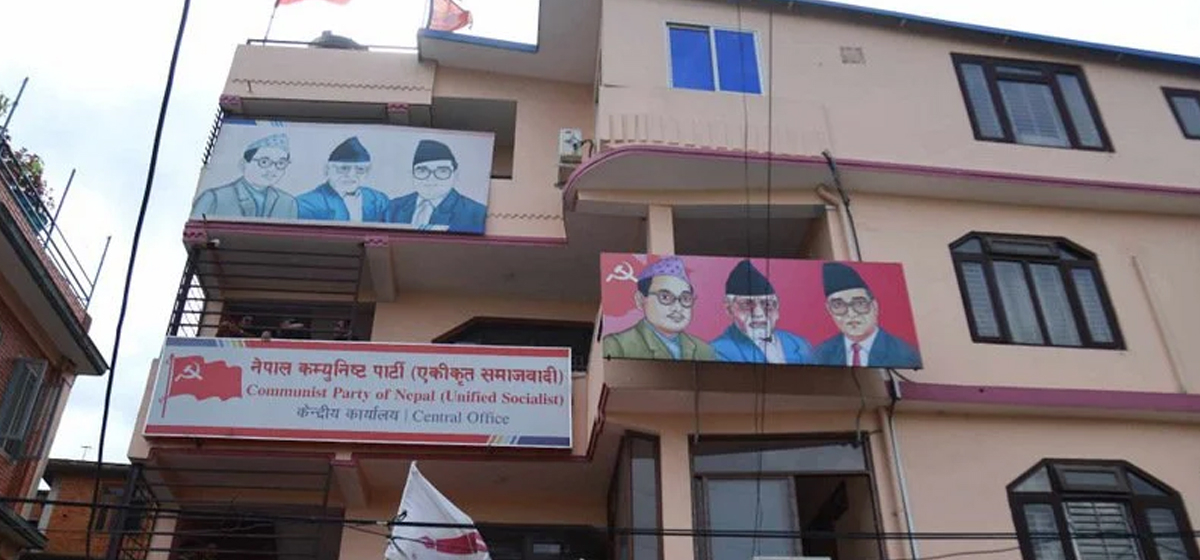




Leave A Comment